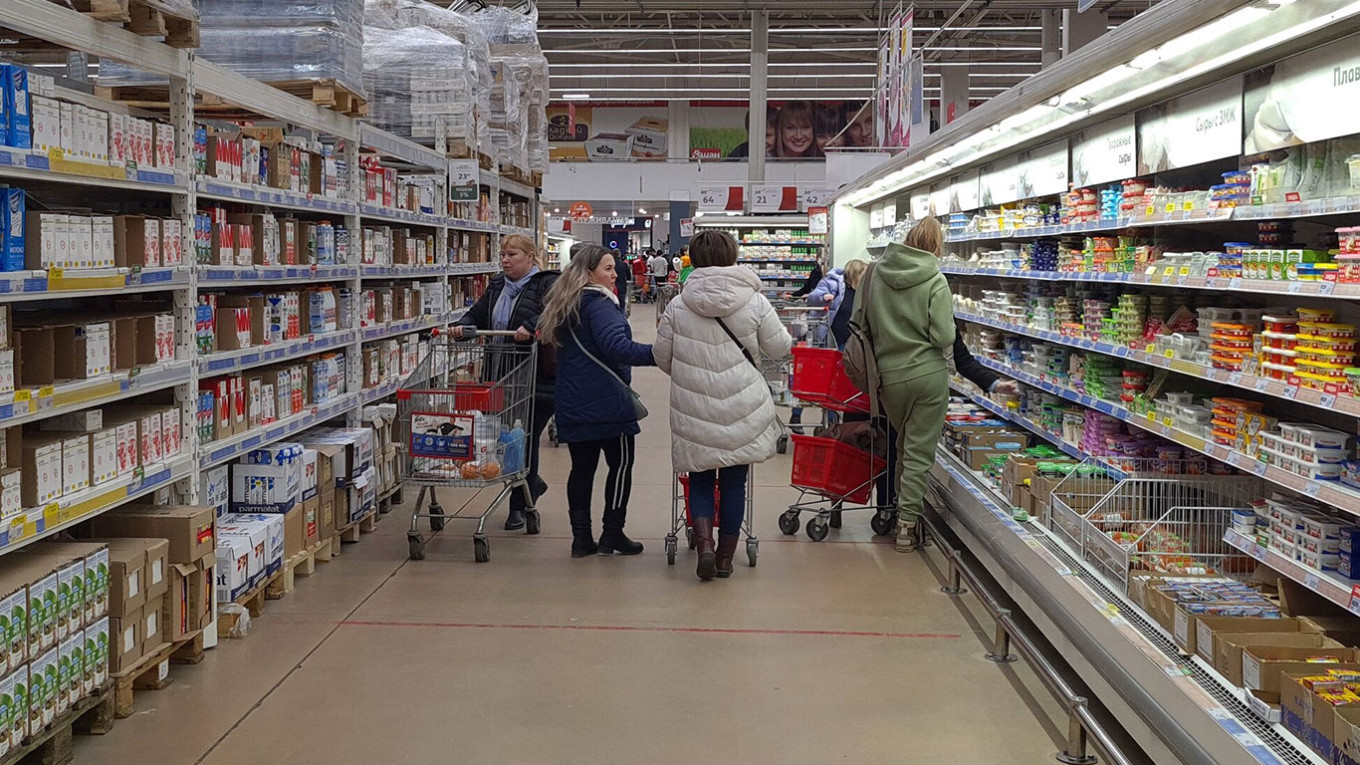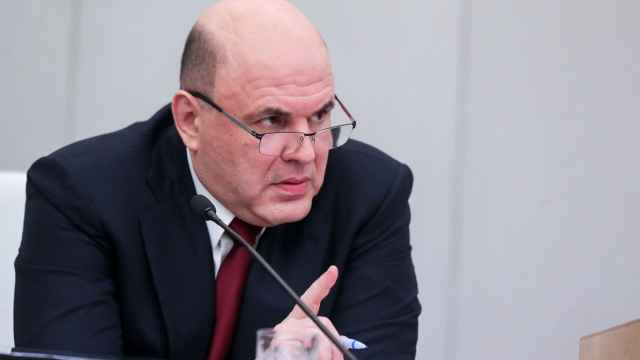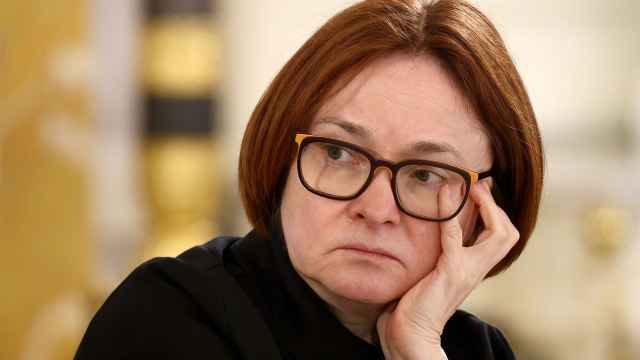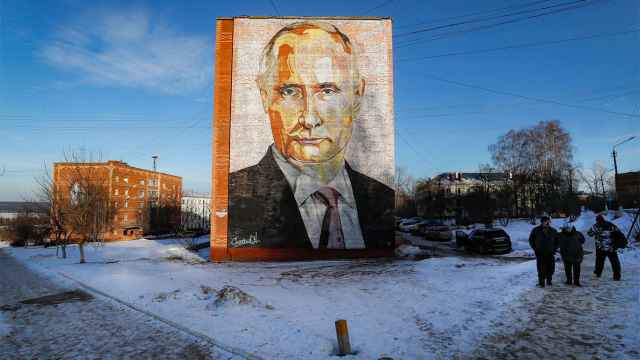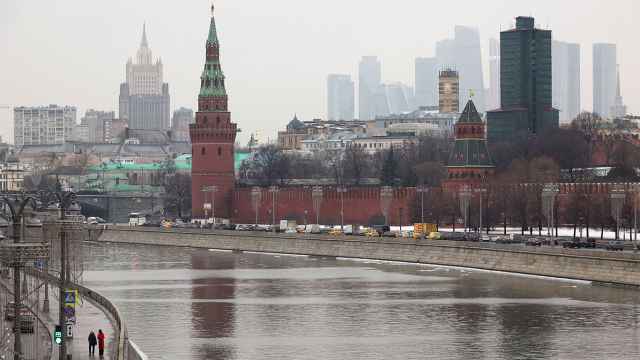Inflation in Russia held at elevated levels in January, data published Wednesday showed, as soaring government spending on the military offensive in Ukraine pushes prices higher.
The Kremlin's sweeping militarization of Russia's economy has helped confound predictions that the campaign could trigger an economic collapse, but has led to rising prices across the country.
Annual inflation came in at 7.4% in January 2024, according to data from the state-run Rosstat statistics agency published on Wednesday.
That rate was unchanged from December, and ahead of the Central Bank's official target of 4%.
Price rises are a particularly sensitive topic in Russian society, where memories of sharp currency devaluation and hyperinflation in the 1990s are vivid.
Fast inflation remains a blemish on what Moscow sees as an otherwise impressive economic record since it ordered troops into Ukraine in February 2022.
Massive investment in military production, as well as high salaries and benefits for soldiers, has largely shielded the economy from the harshest consequences of Western sanctions.
The economy grew 3.6% in 2023, Rosstat said last week, and the International Monetary Fund predicts 2.6% growth this year.
President Vladimir Putin has repeatedly pointed to Russia's economic performance as a sign that Western sanctions have failed.
But independent analysts say the growth is fueled by ballooning military production, drawing comparisons with unsustainably high defense spending during the Soviet Union.
Several non-military sectors of the economy are experiencing record labor shortages, as tens of thousands of people have left the country and the army and weapons producers gobble up workers.
Russia's Central Bank has hiked interest rates to 16% in a bid to cool price rises.
The regulator meets on Friday to review its rates policy, with analysts expecting it to hold steady.
A Message from The Moscow Times:
Dear readers,
We are facing unprecedented challenges. Russia's Prosecutor General's Office has designated The Moscow Times as an "undesirable" organization, criminalizing our work and putting our staff at risk of prosecution. This follows our earlier unjust labeling as a "foreign agent."
These actions are direct attempts to silence independent journalism in Russia. The authorities claim our work "discredits the decisions of the Russian leadership." We see things differently: we strive to provide accurate, unbiased reporting on Russia.
We, the journalists of The Moscow Times, refuse to be silenced. But to continue our work, we need your help.
Your support, no matter how small, makes a world of difference. If you can, please support us monthly starting from just $2. It's quick to set up, and every contribution makes a significant impact.
By supporting The Moscow Times, you're defending open, independent journalism in the face of repression. Thank you for standing with us.
Remind me later.


